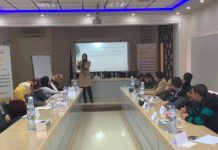The Palestinian cause has never been a pure Palestinian affair, throughout the stages of its development, and it will not be so in the future. The talk here is not about interest and preoccupation with the Palestinian issue, but it is about the reasons for its emergence and the ways to solve it.
 It has been affected by the international, regional and Arab variables. Perhaps this is due, in part, to the emergence of the issue as a Western project that found its interest in getting rid of the “Jewish problem” in Europe and the world via the deportation of Jews and the establishment of a political entity for them in Palestine. Also, this entity can be an “insulator state” in the heart of the Arab region to prevent its unity and to remain there as a tension factor. Maybe the Palestinian cause is not a pure Palestinian affair because of the Palestinians’ inability to confront the settlement and displacement projects alone, and it may be because of many other reasons.
It has been affected by the international, regional and Arab variables. Perhaps this is due, in part, to the emergence of the issue as a Western project that found its interest in getting rid of the “Jewish problem” in Europe and the world via the deportation of Jews and the establishment of a political entity for them in Palestine. Also, this entity can be an “insulator state” in the heart of the Arab region to prevent its unity and to remain there as a tension factor. Maybe the Palestinian cause is not a pure Palestinian affair because of the Palestinians’ inability to confront the settlement and displacement projects alone, and it may be because of many other reasons.
Also, the Palestinian cause is a regional and international issue that is directly affected by the important variables at these two levels, and here comes the importance of monitoring some of the expectations for both international and regional environments in the long term, to explore the impact of all this on it (the Palestinian issue).
In the first place, the US plan to “withdraw from the Middle East” should not be overlooked, as there is a US clear strategy to give more time for countering the Chinese expansion as well as confronting Russia in Europe. It is true that this withdrawal does not mean a complete absence from the region, but it necessarily means a decline in the level of interest and engagement, and thus reducing the ability to put pressures on the State of the Occupation (Israel). Because this strategy is not the idea of the current US president, it would continue if one of the Democrats won the coming elections. However, the situation will be worse with regard to the relationship with the State of Occupation if one of the Republicans became the President of the United States.
On the other hand, we cannot rely too much on the “return” of Russia to the region, as the cold war has gone, never to return, and what we are witnessing today is nothing more than the final touches to its end, in one way or another, often through the distribution of influence. The Russian presence in the region is based on several pillars that do not serve a role in the Palestinian issue, that would balance the American one. The most important of these items are Russia’s political consensus with Washington, bargaining with regard to the files of Syria and Ukraine, and the minimum presence to achieve the best results.
The European Union is in its weakest conditions. The refugees crisis which imposed itself, over the past two years in Europe, is almost threatening to remove a number of leaders of the European continent, as well as endangering the unity of the European Union itself in the south (Greece) and the West (Britain). As for China, it is still taking its first steps on the road to global competition, and it seems that it is satisfied with an only economic competition.
To sum up, we are in front of a global system that is falling apart -or perhaps it has already collapsed- without being replaced by another more stable one. Also, things do not look better at the regional level. The counter-revolution has exhausted the Arab world and swamped it in crises for which it is difficult to predict a quick end. It also removed, from the arena of action, many of the most influential states for the Palestinian cause. The counter-revolution also put Egypt under the rule of al-Sisi as a pressure on the issue and its children, especially the Palestinian resistance. This means that the transitional period, characterized by separate preoccupation with the internal conditions of each Arab country at the expense of giving due attention to the big universal issues, is likely to continue for a long time. Also, the region has not crystallized yet a balance or stable alliances that could be reliable in reading the Arab-regional scene and then building on them.
At the level of regional countries, the relations between Iran and Hamas -a major resistance movement- are still semi-frozen, while Tehran has not built a privileged relationship with Hamas’s political rival (the Palestinian Authority or the Fatah movement) in the light of lukewarm communication even with the Islamic Jihad movement. Even if some people relied on the efforts to restore the relationship between Iran and Hamas to normal, though very slow, however, Iran of today is no longer that of yesterday. First, because it has become part of the international community and it is no longer a “rogue state” that does not care for the international pressures. Second, because what happened, specifically between Iran and Hamas, cannot be easily forgotten and bypassed by the two sides. Third, because Iran has become less keen on the “paper” of the Palestinian issue, which is no longer sufficient to cover its policies in the region. This means that Iran’s support ceiling to the Palestinian issue -if it returns- will not be coming close to its former level.
As for Turkey, the regional counterweight to Iran, which was supposed to be the biggest supporter of the resistance movements, is suffering from the state of decline in the Arab revolutions that the Turkish government bet on, and also from its failures in several files notably the Syrian one. It appears that Turkey is mired in the spiral of military escalation against the PKK. Also, Turkey is exposed to tremendous Western pressures, to the extent that many calls were raised (even from within the ruling party) on the need for radical changes in its foreign policy. If we add to all this the political vision adopted by the official Turkey -the two-state solution- and the recent agreement with the European Union, which requires, among other things, a Turkish “cooperation” with the judicial and intelligence institutions of the European Union in the fight against crime, smuggling and financing of “terrorist organizations”; we can imagine to what extent the hands of Ankara look cuffed towards the Palestinian cause on the strategic term.
At the other end of what is called by some observers as the “new axis” of the Palestinian resistance, there is Qatar with its known and limited capabilities, especially after agreement with Saudi Arabia and its declining role in the Egyptian and Syrian files. There is also Saudi Arabia, which ushered in a new era in the Arab world, but it has not yet carried any new regarding the Palestinian cause.
The final analysis is that the Palestinians are in front of an international scene that is close to chaos and/or confrontation in an attempt to share influence in the region and the world. They are also in front of an Arab-regional scene that is extremely fragile, divided and absorbed in internal and regional conflicts, which means a declining interest in the Palestinian issue , and a deepening of weakness and isolation of the Palestinians. This is the ideal environment for the State of the Occupation to continue the project of Judaizing Jerusalem and the West Bank vigorously. Nothing could stop it (Israel) from launching a military adventure against the Gaza Strip or using more savagery in the face of the youth of the Palestinian uprising in the West Bank, particularly that important parts of the Palestinian political stance still pay more interest to their internal disputes than their hostility against the occupation. What is the solution?!!
It is difficult to talk about ready or easy solutions, and the article space cannot meet what is needed of contexts for analyzing the scene of contexts.
In spite of this, there must be three quick signals:
• First, the importance of internal cohesion amid all these fragmentations, and consensus on the possible minimum, or, at least, avoiding internal confrontations. In light of the regional and international situation, we should not increase our opponents, but it is necessary to reduce liabilities and postpone confrontations as much as possible, even if this required providing some painful concessions.
• Second, exercising extreme caution in taking positions and making declarations under the state of the unprecedented polarization in the region, so that the Palestinians -or their factions- should not be counted with or against one of the parties. They should keep communication with everyone – at varying rates – and continue maintaining caution towards everyone, in accordance with the principle of the independence of stance and decision, and gaining all parties for the benefit of the issue.
• Third, there will not be looming signs of a breakthrough except through a change in the Arab-regional scene, either by historical agreement among various parties to restore the region to normal, and return every party to its normal limits, which is unlikely according to current data, or through a new wave of revolution in the Arab world, especially in Egypt, to turn things upside down and reshuffle the cards. However, this is a step that has not yet met its objective circumstances, as it operates through the point collection method, in the long term.
By: Dr. Said al-Haj is a Palestinian doctor, writer, and a researcher in the Turkish issues.











